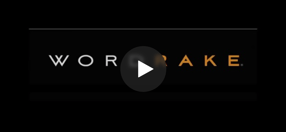Differentiate between "Predicament," "Dilemma," "Quandary," "Plight," "Pickle," and "Jam"
I love the English language. So many words, so much nuance. We live in a lush vineyard of vocabulary. We stroll through, squeezing ripe, plump words, pondering. Carefully, we pick them and blend them into fine sentences that grow richer with age, deep and full-bodied or crisp and fruity, abounding with their own cherry and tobacco, pineapple and chocolate, blackberry and coffee, some with a peppery finish. Often the difference between words is so subtle, we’re not even sure there is one. Like a hint at the end: is that a soupçon of apricot or peach?
Flaubert described writing as “back-breaking, sweaty, time-consuming work” and once confessed in a letter, “Last week I spent five days writing one page.” His life was one long, uncompromising search for the perfect word to blend with other perfect words. While composing Madame Bovary, he would sometimes fall out of his chair in fits of apoplexy, lying on the floor, banging his temples. (Been there.) What is that single word above all others that expresses what I am trying to say?
Today, few of us can afford that luxury (few could afford it back then--Flaubert’s father was a physician), and we know that what we put on paper every day is not meant to stun the world as a new literary form. We just want to communicate clearly and concisely with our colleagues. But we still need to use words precisely.
Let’s practice. What word perfectly describes this situation: I’m about to quit a job I love, working with people I admire, to pursue a longtime dream of opening my own biodynamic winery. I want to stuff cow horns with manure and see the sparkle of morning dew on the vines. I confide in one boss, who empathizes but asks me not to tell anyone that I told him first. I promise I won’t. Now I confide in a second boss, who asks, “Does anyone else know?” To say yes would betray a confidence; to say no would be a lie. So I have a problem. But am I in a predicament, a dilemma, or a quandary? A plight, a pickle, or a jam?
Certainly, I’m in a predicament, because I can’t do what I want to do (which is nothing), I am deeply confused, and I worry I will make the wrong decision.
But I have only two choices, each equally unpleasant or unsatisfactory, which means I might be beyond confusion and facing a stark dilemma.
Could I be in a quandary? That differs from a dilemma when the situation so confounds me, I can’t even see the alternatives. But I can see the alternatives; I just don’t like them. So I’m still facing a dilemma. I think.
My situation is really not that confusing; it’s just an unfortunate, trying, and unhappy place right now. So it might be my plight.
Maybe the word that best describes my situation is a pickle, which is a plight, only particularly distressing. I am definitely in a pickle.
Finally, is there any way I could be in a jam, which is like a pickle, which is a plight? If I’m in a jam, I’m entangled and finding it difficult to extricate myself. That works, sort of. But what to do? I can use only one.
Flaubert was forever in a pickle over words, distressed and sweating for hours to find just the right one. What would he call my situation? I don’t know. But it’s Saturday night, the manure’s in the horn, the quartz is in the ground, the moon is full, the frost is nigh, and the time has come to pick . . . a word: Dilemma.



